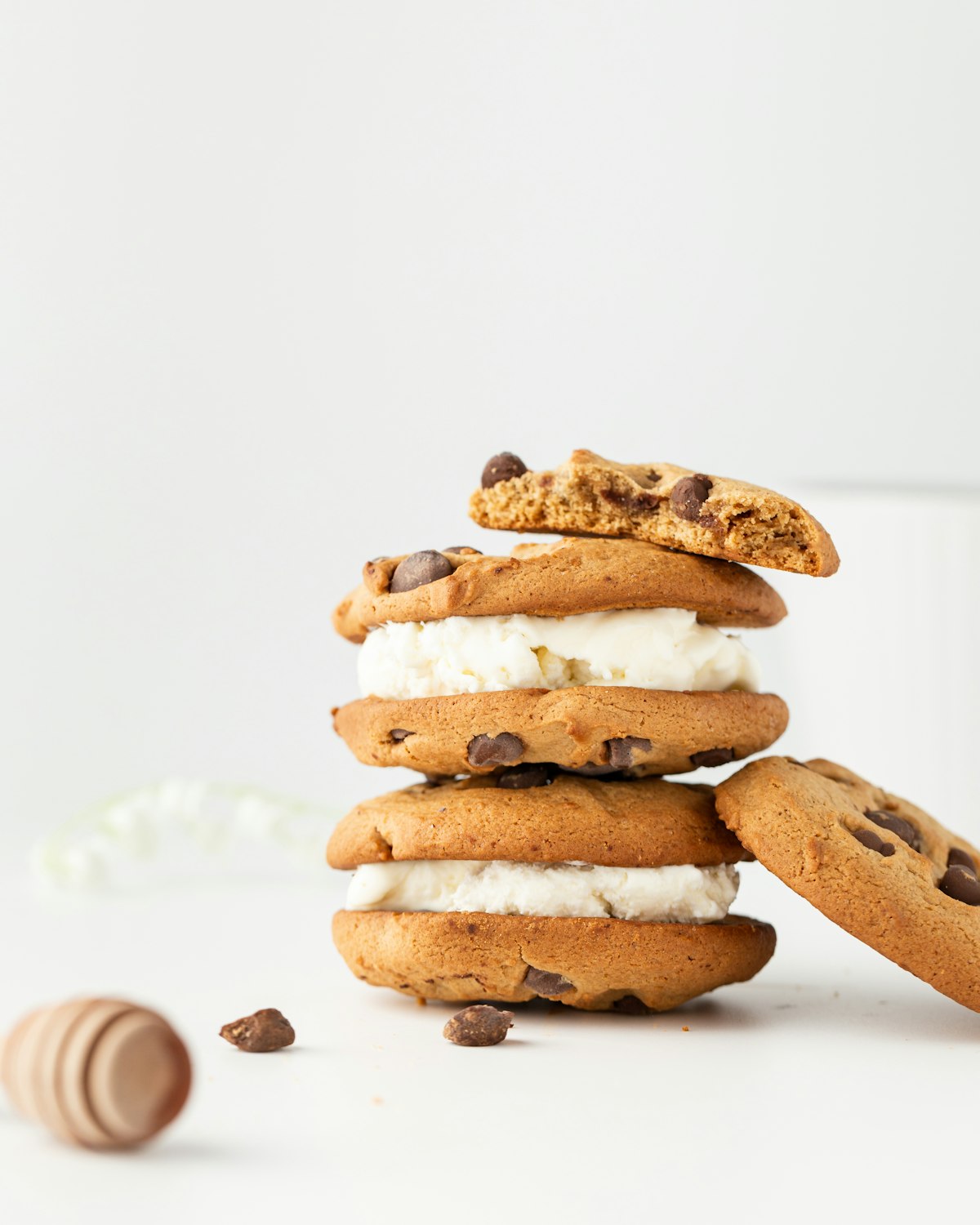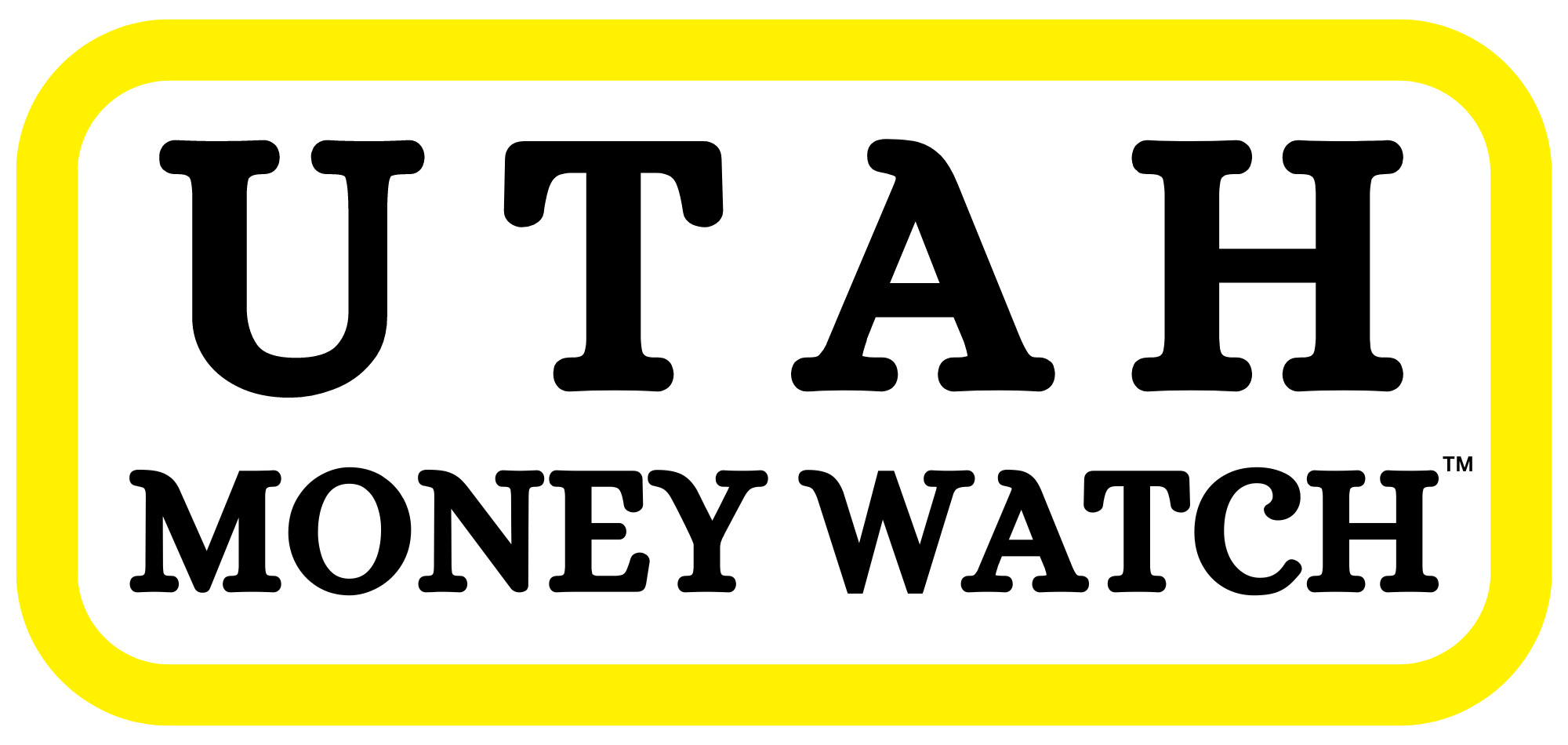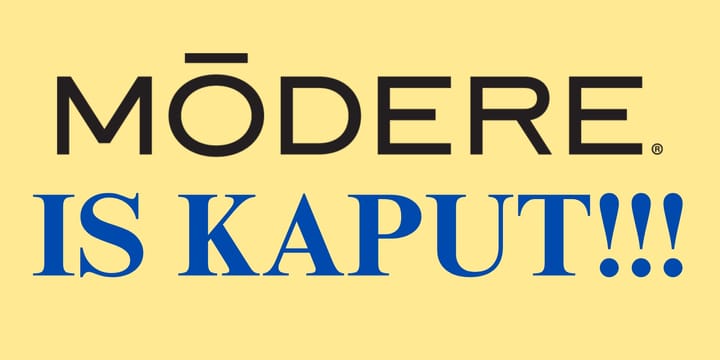Court Order Notwithstanding, Utah's Cookie War Between Crumbl and Dirty Dough Continues

Given that both sides taste victory in the latest U.S. District Court ruling, it's clear to this journalist that the fight between Dirty Dough and Crumbl is nowhere near to being over.
On Friday, the United States District Court (District of Utah) issued a 21-page Ruling* in the case of Crumbl, et.al. vs. Dirty Dough and Bradley Maxwell that, at best, appears to this journalist to be a judicial "Draw" between the opposing parties.
In fact, based upon my review of the publicly available data, as well as information supplied by leadership from both Dirty Dough and Crumbl, I see nothing that suggests that this case is near an end.
The Ruling Itself: Case No. 2:22-CV-318-HCN-CMR
In the Ruling, Judge Howard C. Neilson, Jr. denied Crumbl's request for a Preliminary Injunction against Dirty Dough that would have forced it to
“... delay opening of further franchisee stores [pending] a determination that Dirty Dough will not use any Crumbl information to support franchisee stores.”
In plain English, the Ruling means that Dirty Dough can continue to recruit and sign franchisees (existing and new), and open new franchisee locations, something Crumbl wanted the Court to prevent Dirty Dough from doing until after the case was decided.
Additionally, Crumbl had asked the Court to force Dirty Dough to publicly acknowledge that it had misappropriated various Crumbl trade secrets based upon the definitions of the U.S. Defend Trade Secrets Act and the Utah Uniform Trade Secrets Act.
Specifically, Crumbl wanted Dirty Dough to
- “... issue a corrective public statement conceding improper acquisition” of certain Crumbl information. (Dkt. No. 42 at 2)
Judge Neilson also denied this request, stating in the Ruling that
"... a compelled retraction or corrective statement (from Dirty Dough, et.al.) would be an extraordinary measure."
Clearly, these are two battles won by Dirty Dough, et.al. in the Court Ruling.
However, as both Sun Tzu and Carl von Clausetwitz taught in their separate yet seminal tomes about war, winning battles is fine, but winning the war itself is the actual goal.
How Crumbl Won in Judge Neilson's Ruling
AUTHOR'S NOTE: To start, let me state up front that I'm not going to ask you to dig through last Friday's fairly dense, 21-page court Ruling about a case that's more complicated than I had previously imagined. However, should you be interested in doing so, I have attached a full copy of the Ruling at the end of this writeup* that you can download should you wish to do so, a copy that includes highlights I added to the file to make it easier for me to find specific points in the Ruling.
To his credit, Judge Neilson was (I believe) quite thorough in his Ruling in providing historical context for the uniformed reader as to the facts leading up to last week's decision, as well as prior judicial decisions that informed his decision-making in Crumbl's request for Injunctive Relief.
In timeline format, here are items about Crumbl, et.al. v. Dirty Dough and Bradley Maxwell I did not know before studying the Ruling:
- 28 February 2019: Bradley Maxwell became a process engineer for Crumbl as a contractor;
- March 2019: Bennett Maxwell (Bradley's brother) approaches Crumbl about becoming a franchisee;
- Late March 2019 (date not specified): Bradley Maxwell becomes a Crumbl employee;
- 29 March 2019: Crumbl notifies Bennett Maxwell that it had “decided not to move forward with [him] as a seller at this time;”
- 29 March 2019: Bradley Maxwell signs two agreements with Crumbl - an "EMPLOYEE CONFIDENTIALITY AND NON-COMPETITION AGREEMENT" and a separate "EMPLOYEE CONFIDENTIAL RECIPE AGREEMENT;"
As might be expected, both the Employee Confidentiality and Non-Competition Agreement and the Employee Confidential Recipe Agreement include non-disclosure clauses, definitions that appear to me to be both straightforward and comprehensive. {That being the case, I am neither an attorney or a judge.}
Additionally, both Agreements included language pertaining to the return of any Crumbl-related materials "upon termination of employment."
Continuing the Timeline of Events outlined in the Ruling ...
- Less than two months before 19 May 2019 (date not specified): Bennett and Bradley Maxwell invest in Dirty Dough, "a gourmet cookie company located in Arizona;"
- 19 May 2019: Bennett and Bradley Maxwell each hold a 15% ownership stake in Dirty Dough, with both named in the company’s articles of organization as "members and managers of the company;"
- 1 June 2019: Crumbl terminates Bradley Maxwell's employment. No reason for this termination is provided. And,
- January 2021*: Bennett Maxwell "bought out the remaining interests in Dirty Dough;" {NOTE: The Ruling does not include any information about whether or not Bradley Maxwell maintains an ownership position in Dirty Dough after January 2021.}
- UPDATE 19 August 2023: Bennett Maxwell contacted me via LinkedIn today to let me know that he did, in fact, acquire the ownership stake in Dirty Dough that his brother, Bradley, had previously held.
However, the Judge's Ruling then includes the following:
"During the last week of his employment, Bradley Maxwell downloaded 66 Crumbl recipes and other Crumbl information from Crumbl’s internal password protected server onto his personal cloud drive." See Dkt. No. 135-1 at 82:10–19, 114:1–7.
In addition to the recipes, the downloaded documents included
- "Crumbl sales statistics;
- "Information about process improvement and recipe experiments;
- "Crumbl’s 'cookie calendar' — its projected rotating cookie menu;
- "Individual store specifications, schematics, and blueprints; and
- "Crumbl’s 'Build Out Guides,' which provide franchisees directions and information for building and running a Crumbl store. Dkt. Nos. 104 ¶ 4(c) & 135-1 at 91:15–92:18, 114:13–17, 127:11–16, 144:22–25."
{NOTE: Emphasis and bullet points added for ease in reading.}
The Ruling explains that although Bradley Maxwell DID return his company laptop to Crumbl, he "did not delete or return any of the Crumbl information he had downloaded to his personal cloud drive or home desktop computer."
In fact, the Ruling continues, he uploaded over 640MB of Crumbl information to Dirty Dough's Google Drive in September 2021, including 66 Crumbl recipes and a variety of other Crumbl-related data/materials, such as
- The aformentioned 66 Crumbl recipes;
- A document titled “Crumbl Internal Stats.png” (captured by Bradley Maxwell from an internal Crumbl website on 25 May 2019);
- "All files contained in the Process Improvements folder, which is a folder containing material Bradley Maxwell created or used during his time at Crumbl;
- "All files, including videos, in the 'Experiments and measurements' folder, which is a folder containing material Bradley Maxwell had access to during his time at Crumbl;
- "The file titled 'Cookie Calendar.pdf,' which Bradley Maxwell downloaded from an internal Crumbl file storage system on 26 May 2019, while an employee of Crumbl;
- "Two Crumbl build-out guides, titled 'Crumbl – Build Out 1.0.pdf' and 'Crumbl – Build Out 2.0.pdf,' which Bradley Maxwell received while an employee of Crumbl; (and)
- "The spreadsheet titled 'Store Notes,' which Bradley Maxwell had access to during his time at Crumbl."
{NOTE: A Court-ordered forensic review of various Dirty Dough owned and Dirty Dough-affiliated media devices and sources verified that it did, in fact, have the various confidential Crumbl data, information, and materials noted above stored on devices/sources it owned/controlled or were owned/controlled by Dirty Dough executives and/or employees.}
Following a two-day Evidentiary Hearing that ended on 4 May 2023, "... the parties stipulated to the entry of an order requiring Dirty Dough and Bradley Maxwell to
- "... Return to Crumbl all copies or derivatives of the 'Crumbl Information;'
- "Deliver to Crumbl any notes, memoranda, summaries, or compilations that contain information derived from or incorporating the Crumbl Information; and
- "Verify in writing under oath that they have done so and not retained any copies of the Crumbl Information in any form or format."
So ... given the above, how did Crumbl fare in Friday's Court Ruling?
Here I see two clear wins for Crumbl as well.
On the one hand, the Ruling says
"The court has very little doubt that Bradley Maxwell acted unlawfully - and no doubt that he acted unethically - when he kept the Crumbl information after his employment was terminated and he disclosed the information to Dirty Dough.... And arguments ... to excuse or justify his conduct are contrived and utterly unconvincing."
Additionally, the Report also states:
"Finally, there can be no dispute that Dirty Dough acquired the Crumbl information when Bradley Maxwell uploaded it to Dirty Dough's Google Drive and directly shared it with Dirty Dough employees."
In other words, by my scorecard, I have it as a tie — Crumbl: 2, Dirty Dough: 2.
The Rest of the Story: Crumbl and Dirty Dough, Respectively
As noted in my 19 July 2023 writeup titled "Three Utah-HQ'd Chains Named Among the Top in the U.S. by 'Nation's Restaurant News,'" Crumbl has emerged as a true market leader, with
- System-wise sales of nearly $985 million in 2022, with
- 689 total units in the U.S. last year, and
- Year-over-Year unit growth of nearly 153% in 2022, the 4th-fastest growth in the country (according to NRN).
According to information shared with me via email from Dirty Dough's Founder, Bennett Maxwell, Dirty Dough is clearly the "David" in this battle with an industry giant, as it is currently less than 5% of the size of Crumbl (on a per location basis), with
- 32 locations open today (10 majority owned and operated by "corporate" and 22 franchisee-owned),
- "Leases signed/under construction" for an additional 60 stores that "will be opening within the next 6 months," and
- With "over 375 franchises" sold "that will be opening in the coming years."
According to Bennett Maxwell,
"I am very happy the Judge denied Crumbl’s motion for a preliminary injunction. This lawsuit has always been about a greedy billion dollar company suing multiple start ups for making cookies in attempt to stifle competition."
Nevertheless, just because Crumbl is significantly larger than Dirty Dough does not mean it is a bully or that its legal actions in this regard are without merit.
For its part, Crumbl was not willing to make its executives available to me, but instead issued a formal statement which it titled Utah Lawsuit Update - Significant Victory.
In part, this Update reads:
"Crumbl is pleased and strengthened by the recent court order reinforcing our effort to safeguard our intellectual property. We have achieved a significant legal victory and secured a stipulated order in which Dirty Dough has agreed to return Crumbl’s trade secret information. Although the court did not grant our additional request to halt Dirty Dough’s franchising activities at this time, we are thrilled that the decision includes a conclusion that 'Crumbl has probably established a substantial likelihood of success on the merits' of its claims as well as other powerful findings in Crumbl’s favor on key issues.
"... Pursuing this legal route was an essential step in our determination to protect the brand and our franchisees."
In reference to its franchisees, customers and employees, Crumbl closed its Update in this way:
"Your unyielding belief in our brand fuels our resolve to stand firm and safeguard what we have built."
So What Does it All Mean?
To be honest, I have no idea which party will come off victorious once this case goes to trial in January 2024.
From a financial perspective, I suspect that Crumbl has the deeper pockets, and therefore, the ability to drag-out this fight in an effort to bury Dirty Dough under mountains of legal paperwork and court proceedings.
Nonetheless, in spite of Crumbl's dramatic success in gaining visibility, engagement and customer fanatics across all social media platforms, I believe it's pretty clear that Dirty Dough is not afraid of "getting dirty" in its fight to prevent its "go(ing) out of business" because of the legal efforts of Crumbl, including waging this war in the "Court of Public Opinion."
And personally, I think Dirty Dough has done fairly well in this regard.
However, based upon the latest Court Ruling, the only things I know for sure about Crumbl, et.al. v. Dirty Dough and Bradley Maxwell is the following:
- Dirty Dough did have confidential Crumbl Information in its possession;
- Such Information has, apparently, been returned to Crumbl;
- Crumbl did not reach the standard necessary for the Court to issue a Preliminary Injunction against Dirty Dough to A) Prevent it from opening new franchisee stores, or B) Cause it to issue a "compelled retraction or corrective statement."
So ... which firm is gonna win this war?
I. Have. No. Idea.
AT ALL.
* — The file below is a copy of the 11 August 2023 MEMORANDUM DECISION AND ORDER DENYING PLAINTIFF'S MOTION FOR PRELIMINARY INJUNCTION in Case No. 2:22-CV-318-HCN-CMR (CRUMBL LLC; CRUMBL IP, LLC; and CRUMBL FRANCHISING, LLC, Plaintiffs v. DIRTY DOUGH LLC; and BRADLEY MAXWELL, Defendants. It can be downloaded to your computer by clicking on the Blue arrow on the righthand side of the image.




Comments ()